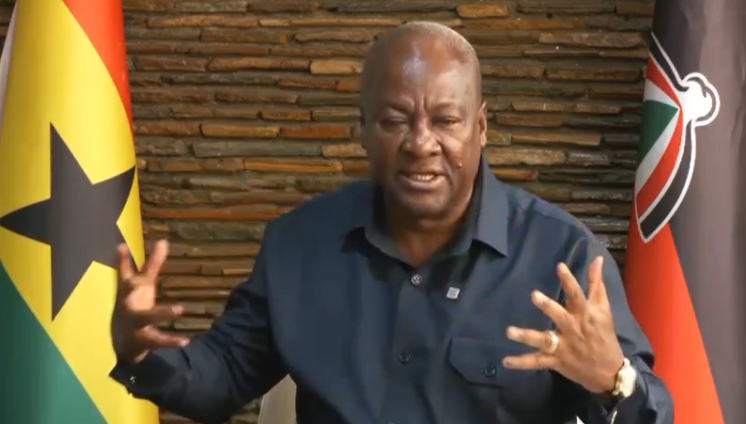President-elect, John Mahama, has pledged to revamp the cocoa sector and reorganise the state-run regulator, aiming to stimulate growth and improve efficiency in the world's second-largest cocoa producer.
In an interview with Reuters on Friday, he criticised the cocoa industry structure where the cocoa marketing board (COCOBOD) competes with farmers for profits.
"Can we have a state enterprise that is the regulator and quality controller, and that creates an opportunity where the farmer is getting his money directly?" Mahama said.
"We will see how to restructure it (COCOBOD)."
The COCOBOD controls all aspects of cocoa production in Ghana – from seedlings to jute bag supplies for packing beans for exports. Previous attempts to break it up have failed.
Mahama said his government would work out the modalities of a restructuring, hinting at private sector involvement in some areas handled by COCOBOD.
A former president, Mahama secured a decisive victory in the Dec. 7 election, driven by voter dissatisfaction with the rising cost of living, instability and falling production in the country's key cocoa and gold sectors.
As leader of the National Democratic Congress party, which also secured a wide majority in the parliamentary election, Mahama will take office on Jan. 7, as the economy recovers from its worst crisis in a generation.
Mahama said one of his priorities would be to revamp cocoa and crude oil output to help lift growth and increase non-tax revenue.
Ghana's cocoa production hit its lowest level in decades last season, dragged down by climate change, tree disease and wildcat gold mining.
COCOBOD's spending has also come under scrutiny after it emerged that its administrative costs more than tripled between 2018 and 2023.
Mahama blamed what he described as COCOBOD's wasteful spending for depleting cocoa production funds and depriving farmers of optimal prices, leading many to turn to illegal mining or seek alternative livelihoods.
His proposed reforms aim to increase efficiency across the cocoa sector's value chain, with the farmer as the primary beneficiary, not the bureaucracy.
The International Monetary Fund (IMF), which is administering a three-year, $3 billion rescue package with Ghana, has prompted COCOBOD to propose a turnaround plan to cut costs and increase farmers' share of cocoa revenues.
"We're willing to work with anybody if it'll make the cocoa sector more efficient and bring back our cocoa production to what it was before," Mahama said.
Latest Stories
-
London Mayor Sadiq Khan to address innovation and education at University of Ghana today
15 minutes -
Ghana’s housing sector: 90% of houses built by individuals, land access must be improved – ISSER
20 minutes -
Fuel prices up: petrol going for GH₵12.88, diesel GH₵14.88 a litre
23 minutes -
Witchcraft accusation turns deadly: 4 arrested over killing of 70-year-old in Sangbana
32 minutes -
Teenager reports family to DOVVSU over limited meals, pocket money
36 minutes -
Bond market: Trading activity GH¢2.12bn, highest since 2023
40 minutes -
Importers and Exporters Association applauds appointment of women to GMA board
41 minutes -
BoG working on new framework to enable SMEs unlock short-term capital – Second Deputy BoG Governor
46 minutes -
PURC warns against unapproved meters as revenue loss hits NEDCo in Bono East
48 minutes -
Dr. James Orleans-Lindsay to deliver keynote address at Africa Rising Symposium at LSE
1 hour -
Cedi confidence and the cost of complacency: What the BoG Governor’s speech reveals
2 hours -
Ga Mantse pledges support for Onesta Ghana’s Palm Oil expansion drive
2 hours -
Today’s Front pages: Wednesday, July 16, 2025
2 hours -
2025 Ghana CEO Vision & Awards: Basil David Anthony nominated for CEO of the Year in Deco and Design
3 hours -
Government committed to honouring sacrifices of veterans – Defence Minister
3 hours

